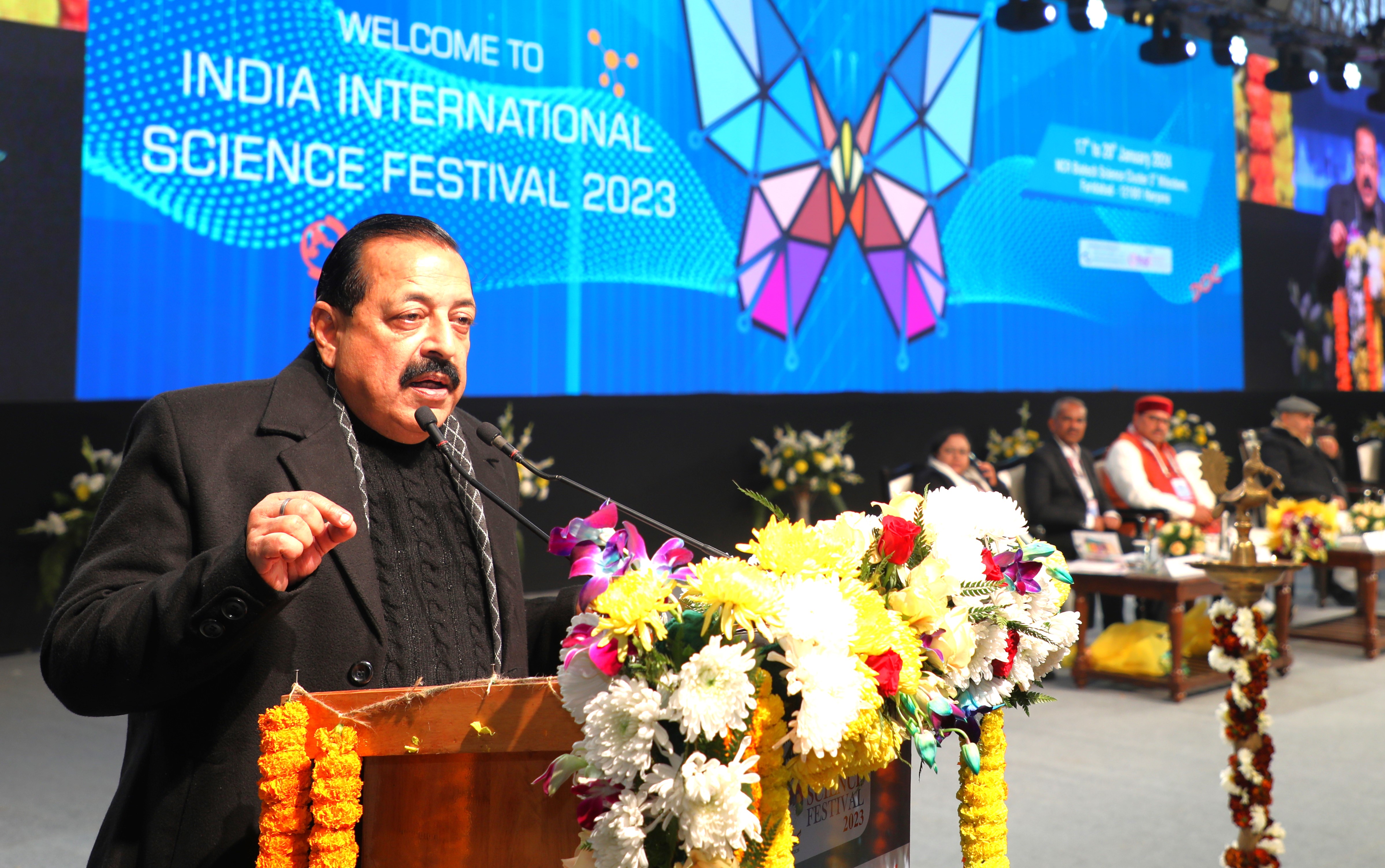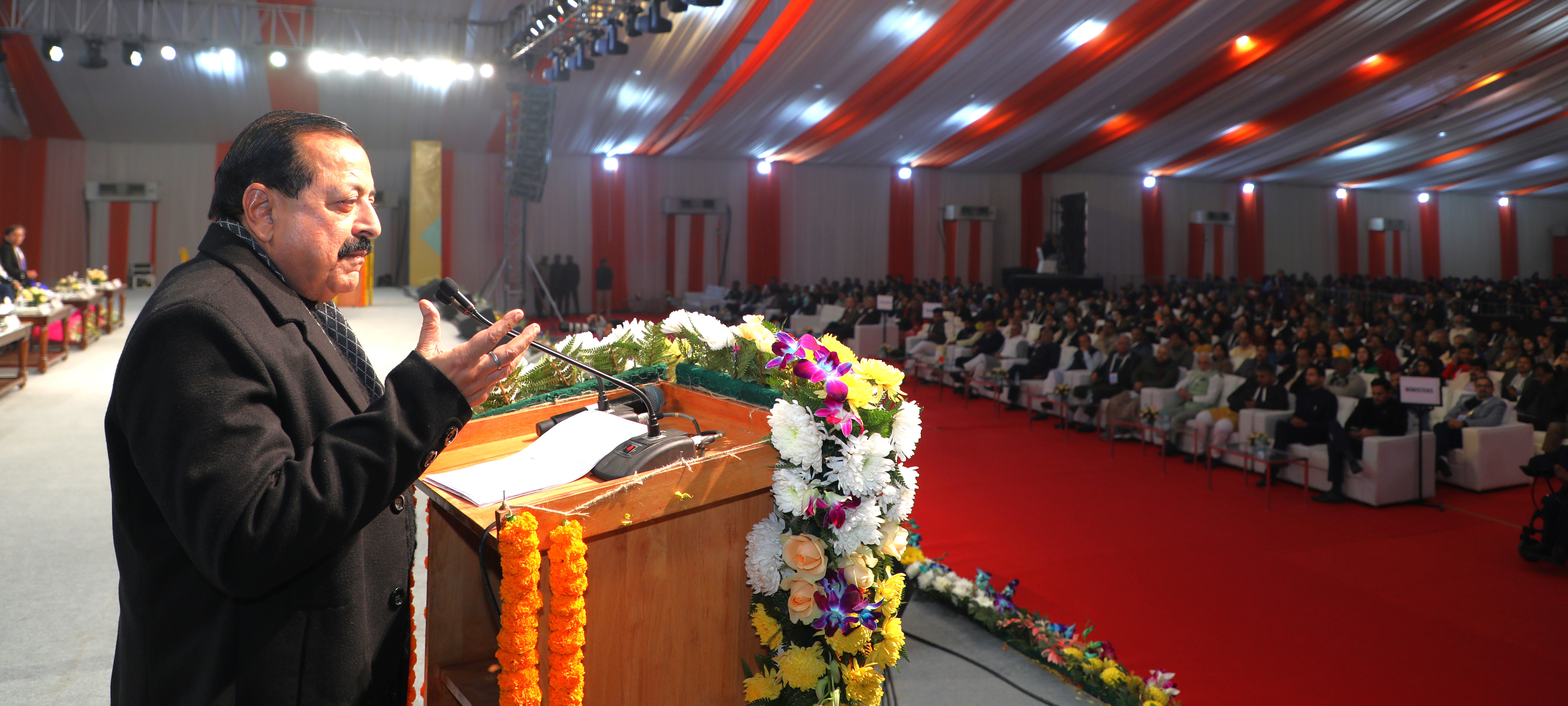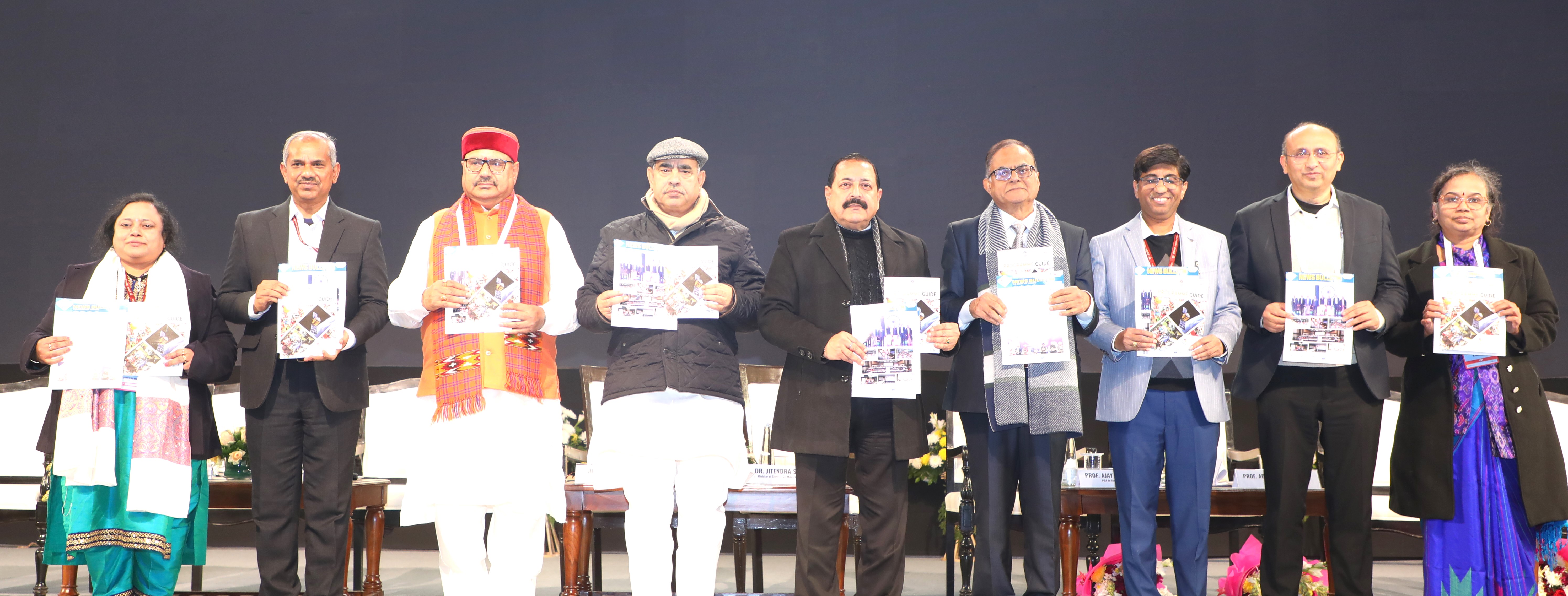Dr. Jitendra Singh Urges Pursuit of Indian Solutions for Indian Challenges Amid India’s Rising Stature Among Developed and Scientifically Advanced Nations
Union S&T Minister Dr Jitendra Singh today called for finding Indian solutions to Indian problems as India emerges as a frontline nation in the comity of developed and scientifically and advanced countries.
Addressing the Inaugural Session of the 9th India International Science Festival in Faridabad, Haryana, Dr Jitendra Singh cited three success stories in S&T that have defined India’s emergence in the last decade.
“India is the first country to land on the South Polar region of the Moon, India’s Vaccine success story is cited the world over and the Aroma Mission that has spurred the sprouting of a range of Startups,” he said.
“We have a political leadership today under Prime Minister Modi which has sent a message loud and clear that gone are the days when we waited for others to take the lead and then follow. India of 2024 is ready to take a giant leap and move forward on its ascent of its scientific acumen and its technological prowess,” he said.
Dr Jitendra Singh said, at least five major decisions have been taken in this direction in the recent times.
“Space reforms bringing in PPP model; Anusandhan NRF that will be better than the best; National Quantum Mission that places India in a league of select 6 or 7 countries pursuing Quantum Technology; National Geospatial Policy that is already being used extensively in SVAMTIVA scheme for geomapping properties and agricultural farms; and the National Education Policy, NEP-2020, that has set the young generation free from being prisoners of the aspirations will help fulfill the Viksit Bharat@2047 as envisioned by PM Modi,” he said.
Dr Jitendra Singh said, Prime Minister Shri Narendra Modi has broken taboos of the past by opening the Space sector to public-private-participation. From just 1 Startup in the Space sector in 2014, we now have 199 Space Startups. Over Rs.1,000 crore investment has come in from Space Startups in last nine months of the current financial year from April to December 2023, he said.
“India’s Space economy today stands at a modest $8 billion, but our own projection is that by 2040 it will scale $40 billion. But more interesting is that according to some international observers, for example the recent ADL (Arthur D Little) Report mentions that we could have the potential of $100 Billion by 2040,” he said.
Stating that the “Anusandhan National Research Foundation” will pave the way for a greater PPP model in scientific research, Dr Jitendra Singh said the NRF will catapult us to the league of a handful of Developed nations pioneering new research in new frontiers.
“NRF budget envisions a spending of Rs. 50,000 crore over five years, out of which over 70%, will come from non-government sources, including domestic as well as outside sources,” he said.
The Minister said that the National Education Policy 2020 is something that India was waiting for several decades. The biggest change was renaming the Ministry of Human Resource and Development to Ministry of Education.
“NEP-2020 liberates students from being ‘prisoners of their aspiration’, by allowing switch over or combinations from different streams of studies such as Humanities and Commerce to Sciences and Engineering,” said Dr Jitendra Singh, to the thunderous applause of hundreds of school children.
Stating that most journals describe India as the bright spot, Dr Jitendra Singh said, the children of today are blessed to be the architects of the technology driven Amritkaal.
“If you go by the international yardstick, we are rated No.3 in the world in the Startup ecosystem, we were just 350 (ten years back), and it’s all happened in the last ten years; in the Global Innovation Index we were 81, we’ve jumped 41 places, today we are No. 40 in the world, in the resident patent filling, we were 7thrank in the world, in the network readiness we were 79, today we are 60, these are all world acclaimed yardsticks, in biotechnology, we were 50 Startups, today we are 6,000, we were simply $10 billion bioeconomy, within eight years we went 8 times more $80, today we are $140 billion and in biomanufacturing we are among the first five in the world,” he said.





